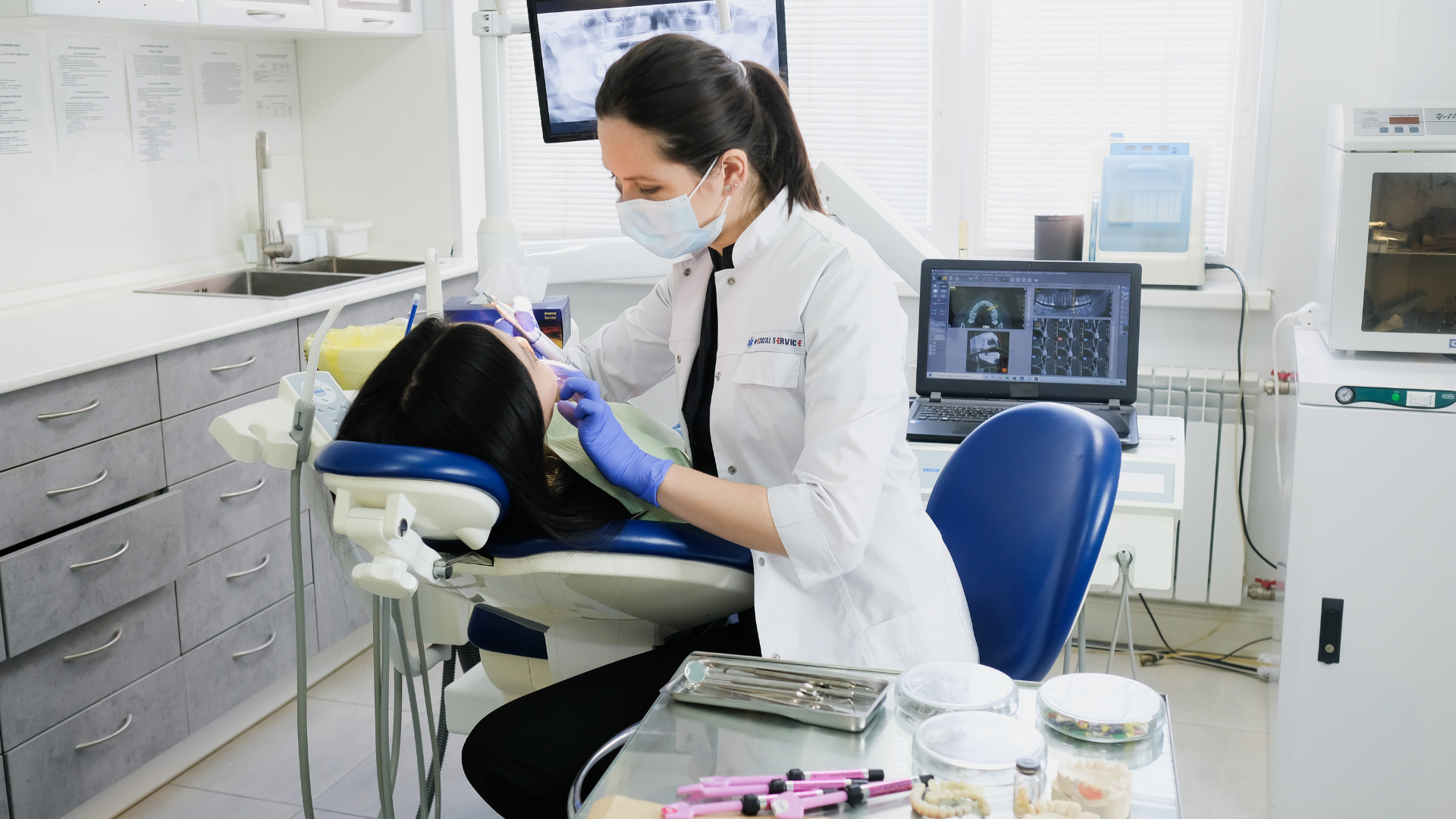How to Choose the Best Emergency Dentist in Midland, TX
Understanding the Role of an Emergency Dentist
Services Provided by Emergency Dentists
An emergency dentist provides immediate attention to acute oral health issues. Their expertise is not limited to relieving severe tooth pain; they are equipped to handle various dental emergencies. These professionals are trained to address knocked-out teeth, lost fillings or crowns, severe infections, and injuries to the mouth or jaw.
Key services include:
- Immediate pain relief
- Treatment of dental injuries
- Management of severe infections
- Reattachment of knocked-out teeth
- Temporary restorations for lost fillings or crowns
When to Seek Emergency Dental Care
Understanding an emergency dentist's role and services helps manage dental emergencies effectively. Regular dental check-ups and good oral hygiene are preventive measures, but knowing when and how to seek urgent care is equally important. Dental emergencies can occur unexpectedly, and being prepared to identify and react to them is key to maintaining oral health.
Difference Between Regular and Emergency Dental Visits
The availability of an emergency dentist can be the difference between saving or losing a tooth and preventing further complications that could lead to more extensive and costly treatments. Unlike regular dental visits, which are often scheduled and routine, emergency dental visits are unscheduled and address immediate, usually severe, dental issues. Regular visits focus on preventive care and maintenance, while emergency visits concern urgent intervention and relief.
Common Dental Emergencies and How They Are Treated
Toothaches and Abscesses
Toothaches can be caused by various issues, including cavities, gum disease, or infections. Immediate pain relief is crucial, and treatment may involve antibiotics for infections or procedures like root canals to remove the infected tissue.
Broken or Chipped Teeth
A broken or chipped tooth can result from trauma or biting down on something hard. Treatment options include dental bonding, crowns, or veneers to restore the tooth's appearance and function.
Lost Fillings or Crowns
Losing a filling or crown can expose the tooth to further damage and sensitivity. Temporary restorations can protect the tooth until a permanent solution is available.
In any dental emergency, it's essential to contact your dentist immediately to prevent further complications and ensure timely treatment.
Steps to Take During a Dental Emergency
Immediate Actions to Relieve Pain
Swift action is essential in a dental emergency. Delaying treatment can lead to more severe pain, increased risk of infection, and potentially irreversible damage. Here are some steps to take immediately:
- Rinse your mouth with warm water to clean the area.
- Use dental floss to remove any lodged food particles.
- Apply a cold compress to the outside of your mouth to reduce swelling.
- Take over-the-counter pain relievers, but avoid aspirin as it can increase bleeding.
Contacting Your Emergency Dentist
Get an appointment ASAP: After you call your dentist, the team will do everything they can to schedule you for an appointment, ideally on the same day. In the meantime, they may offer first-aid tips over the phone to help manage your situation or redirect you to an emergency dentist.
After Hours Dental Emergency at John K. Drisdale DMD: When you call the office number after hours, an answering machine service will triage the call.
What to Expect During Your Visit
When you arrive at the dental emergency office, you can expect the following:
- A detailed emergency exam to assess the situation.
- Immediate treatment to alleviate pain and address the issue.
- A discussion of follow-up care and any necessary procedures.
Remember, in a dental emergency, every second counts. Being well-prepared can help alleviate stress and facilitate a smoother experience at the emergency dental clinic.
Benefits of Choosing a Local Emergency Dentist in Midland, TX
Quick Response Time
One of the primary benefits of choosing a local emergency dentist in Midland, TX, is the quick response time. When a dental emergency strikes, time is of the essence. A local dentist can provide prompt care, reducing the risk of complications and alleviating pain faster.
Familiarity with Local Healthcare Facilities
A local emergency dentist will have established relationships with nearby healthcare facilities. This familiarity can be crucial in coordinating comprehensive care, especially if your dental emergency requires additional medical attention.
Personalized Care and Follow-Up
Choosing a local emergency dentist ensures you receive personalized care tailored to your needs. Local dentists are more likely to offer follow-up appointments to monitor your recovery and address ongoing concerns.
Dental emergencies are often painful and debilitating experiences. For this reason, it is important to have an emergency dentist in Midland who welcomes patients with urgent dental needs while providing the prompt care required to restore oral health.
Cost and Insurance Considerations for Emergency Dental Care
Understanding Treatment Costs
Understanding the costs of emergency dental services is crucial for anyone facing a dental crisis. Every dental emergency is different, and the price can vary depending on the specific treatment required. Here is a general breakdown of potential costs for emergency dental services:
- Initial Consultation: Insurance may cover this or have a fixed fee.
- Follow-up Treatments: Additional treatments post-emergency care can vary in cost.
- After-Hours Surcharge: Services outside regular hours may come with extra charges.
Always confirm the costs with your emergency dentist beforehand to ensure you are prepared for out-of-pocket expenses.
Insurance Coverage for Emergencies
Insurance policies often cover a significant portion of emergency dental treatments, but coverage levels can vary greatly. It's essential to review your insurance policy details to avoid unexpected expenses. Does dental insurance cover dental emergencies? The answer is often yes, but the extent of coverage can differ. Make sure to check:
- What specific treatments are covered?
- The percentage of costs covered by your insurance.
- Any deductibles or co-pays required.
Preparing for Future Dental Emergencies
Creating a Dental Emergency Kit
Preparing for a dental emergency starts with having a well-stocked dental emergency kit. This kit should include essential items such as gauze, a small container with a lid, pain relievers, and the contact information of your emergency dentist. Having these items on hand can help you manage the situation more effectively until you can get professional care.
Regular Dental Check-Ups
Preventive measures are crucial in avoiding dental emergencies. Regular dental check-ups allow for the early detection of potential issues and timely intervention. These visits can help you maintain optimal oral health and reduce the likelihood of unexpected dental problems.
Knowing Your Emergency Dentist's Contact Information
Make sure you have your emergency dentist's contact information readily available, including their phone number, address, and office hours. Having this information at your fingertips can help you promptly get the care you need.
Dental emergencies can occur unexpectedly, and being prepared to identify and react to them is key to maintaining oral health.
Frequently Asked Questions
What services do emergency dentists in Midland, TX, offer?
Emergency dentists in Midland, TX, provide urgent dental care for tooth pain, broken or chipped teeth, lost fillings or crowns, and abscesses. They are equipped to handle a variety of dental emergencies promptly.
When should I seek emergency dental care?
You should seek emergency dental care if you experience severe tooth pain, a knocked-out tooth, broken or chipped teeth, lost fillings or crowns, or any dental issue causing significant pain or discomfort.
What makes an emergency dentist different from a regular dentist?
An emergency dentist is specifically trained to handle urgent dental issues and is often available outside of regular office hours. They provide immediate care to alleviate pain and prevent further damage.
How can I manage pain before seeing an emergency dentist?
To manage pain before seeing an emergency dentist, take over-the-counter pain relievers, apply a cold compress to the affected area, and avoid eating or drinking anything very hot or cold.
Will my insurance cover emergency dental care?
Insurance coverage for emergency dental care varies by provider and plan. It's best to check with your insurance company to understand what is covered and any out-of-pocket costs you may incur.
What should I include in a dental emergency kit?
A dental emergency kit should include gauze, a small container with a lid, pain relievers, a cold compress, and the contact information of your emergency dentist. This can help you manage the situation until you can see a dentist.




